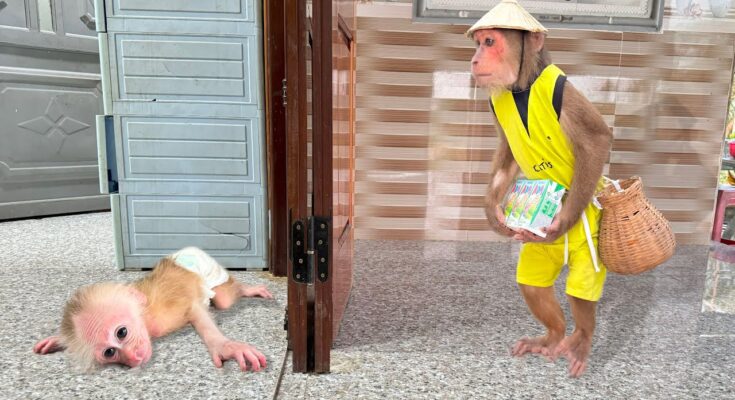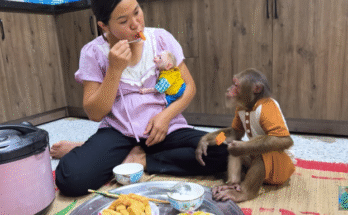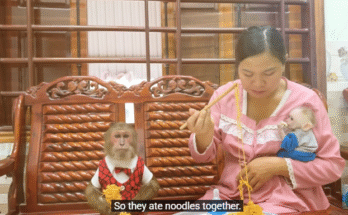In a quiet village nestled between green hills and wide rivers, there lived a boy named Cutis. He wasn’t very old—just twelve—but already carried the heart of a man far beyond his years. Life in the village was simple but not easy. Most families lived off the land, and Cutis’s family was no different. But what made his story so extraordinary wasn’t just his hardworking spirit—it was his deep love and sense of responsibility for his little brother and an unexpected member of the family: a baby monkey.
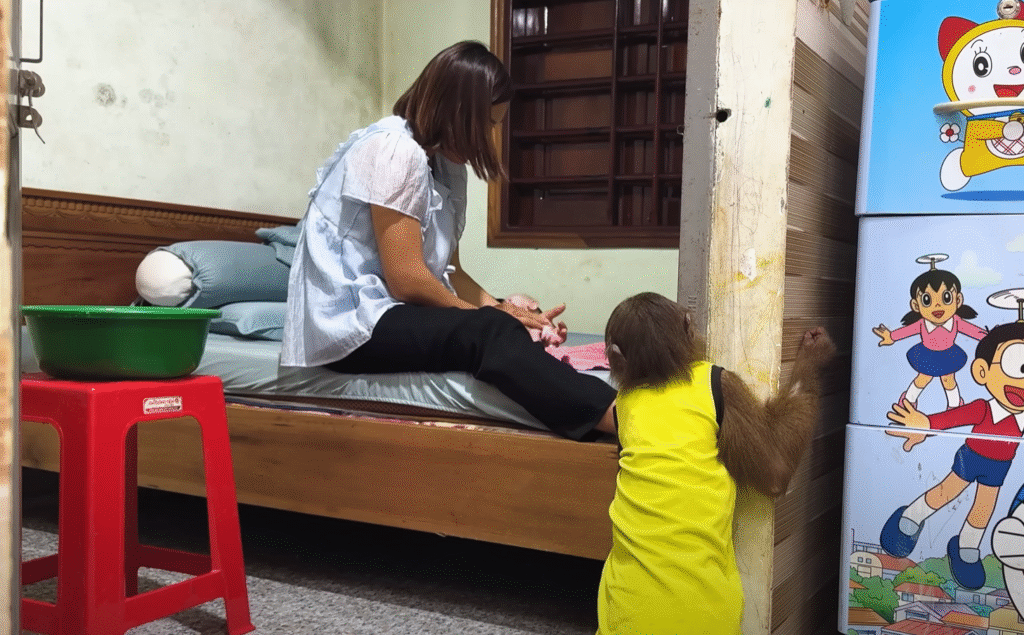
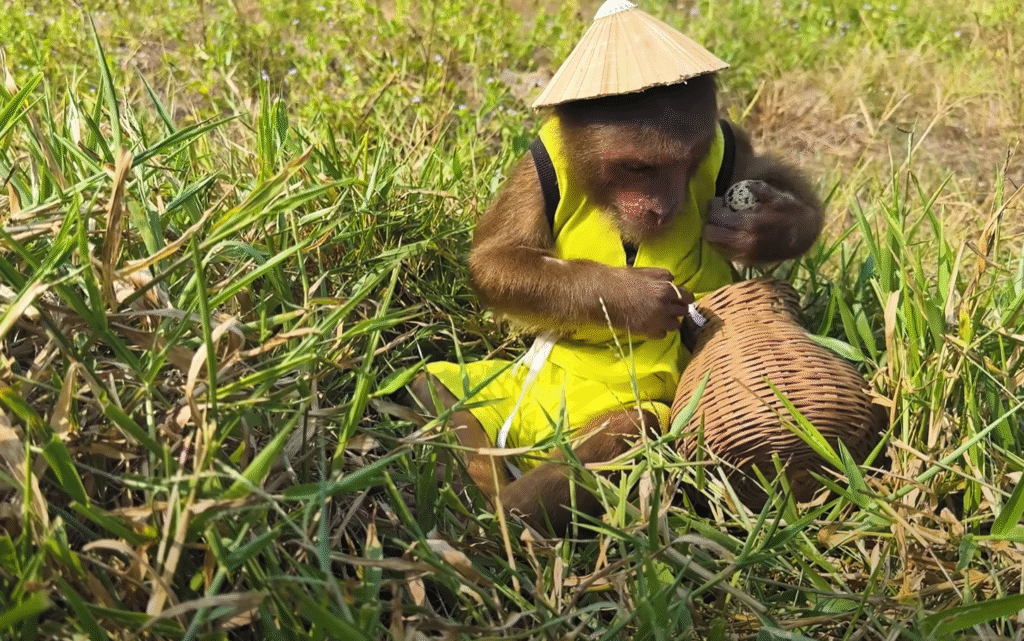
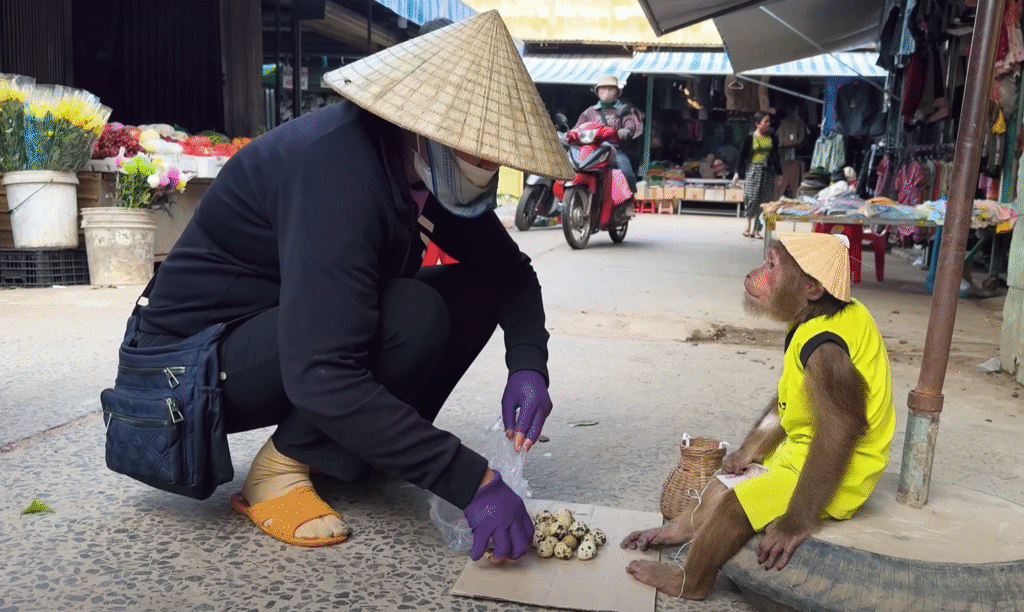
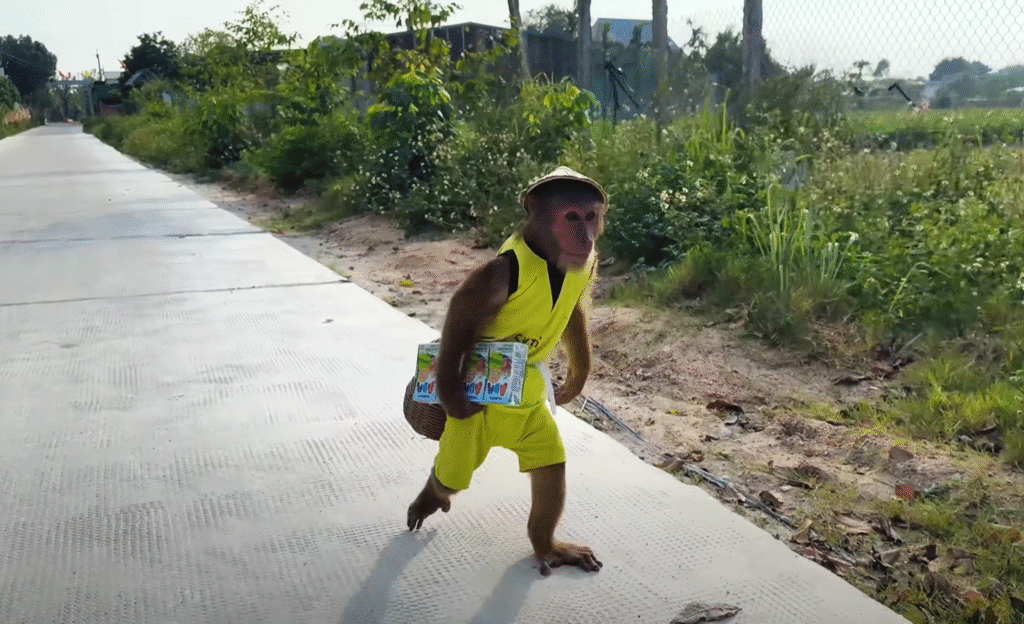
Cutis’s parents had passed away in an accident when he was only ten. Since then, it had been just him and his younger brother, Mali, who was only a toddler when their lives changed forever. They were taken in by their elderly grandmother, but she was frail and couldn’t work. So, Cutis stepped up, becoming both brother and provider.
Every morning before the sun even stretched across the fields, Cutis was already awake. He would help his grandmother prepare simple rice and tea for breakfast, dress Mali, and then head off to find work. He did whatever he could—carried bricks at construction sites, helped farmers gather crops, cleaned motorbikes in the village, and even fished along the riverbank for something to eat or sell. Every coin he earned, he saved. Not for toys or sweets like most boys his age, but for food, clothes, and the small joys he could offer his brother.
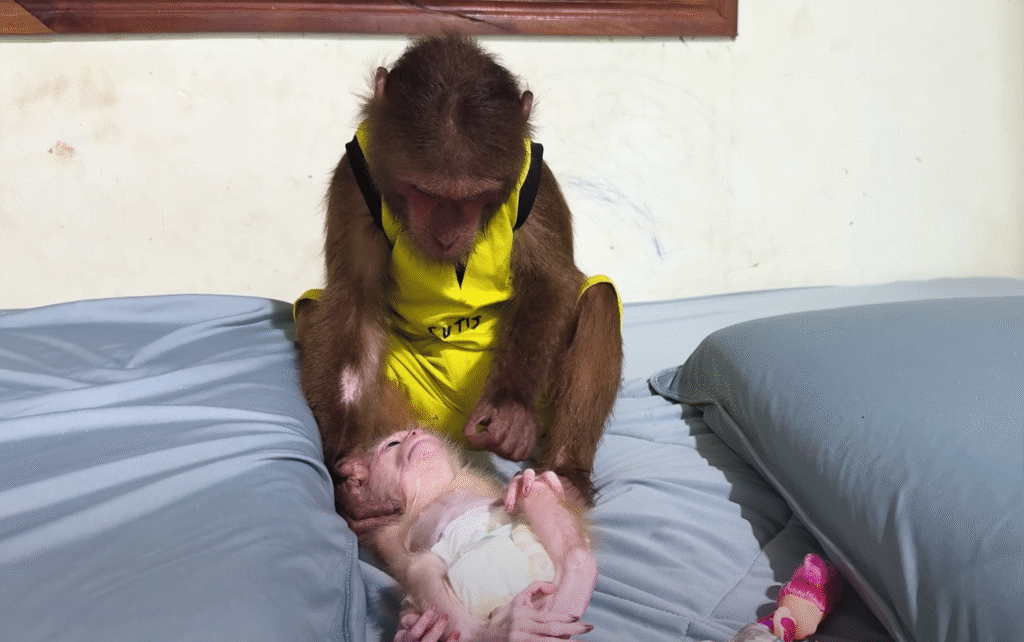
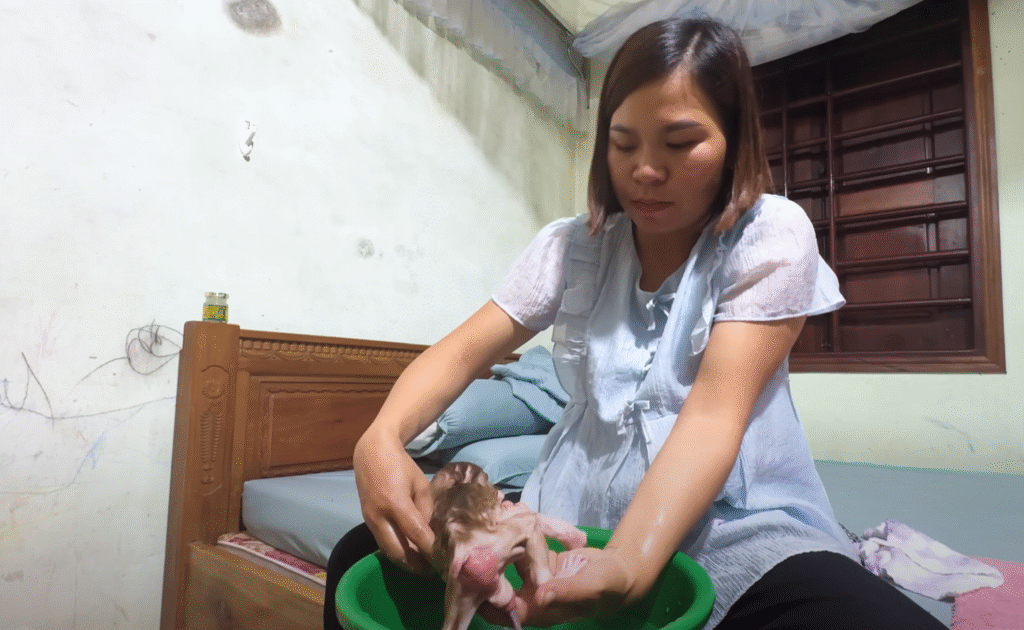
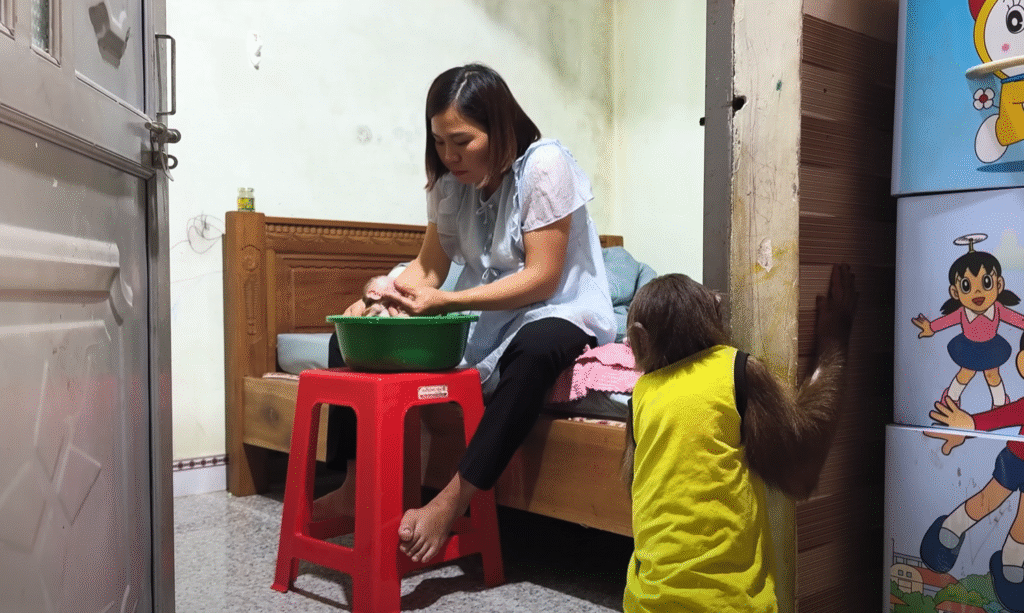

One rainy afternoon, while on his way back from delivering a sack of rice for a neighbor, Cutis heard a strange whimpering sound near the trees. Curious, he walked closer and found a tiny, shivering baby monkey curled up under some leaves. It looked weak, scared, and alone. Its eyes met Cutis’s, and in that moment, something clicked in his heart.
Without thinking twice, he took off his jacket, wrapped the monkey in it, and brought it home.
His grandmother was surprised but understood. “This creature has no one,” she said softly, stroking the monkey’s head. “Just like Mali once did. You have a big heart, Cutis.”
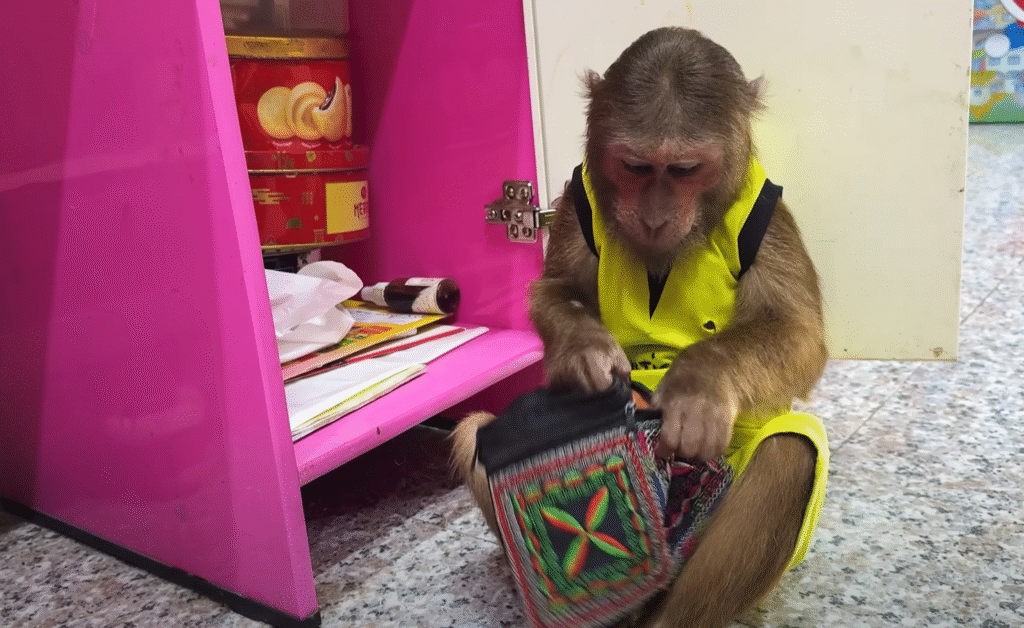
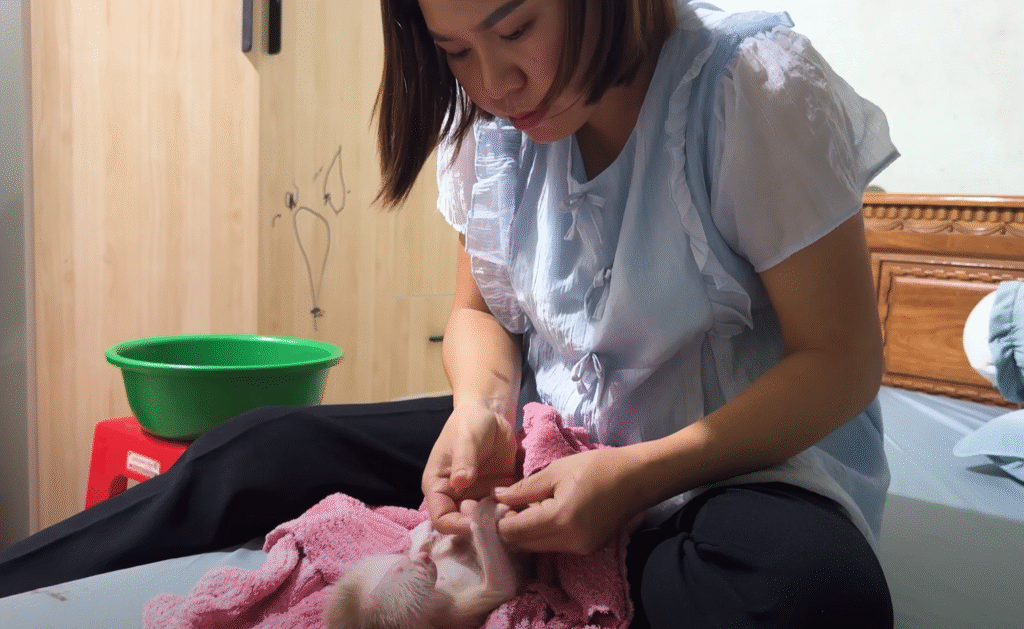
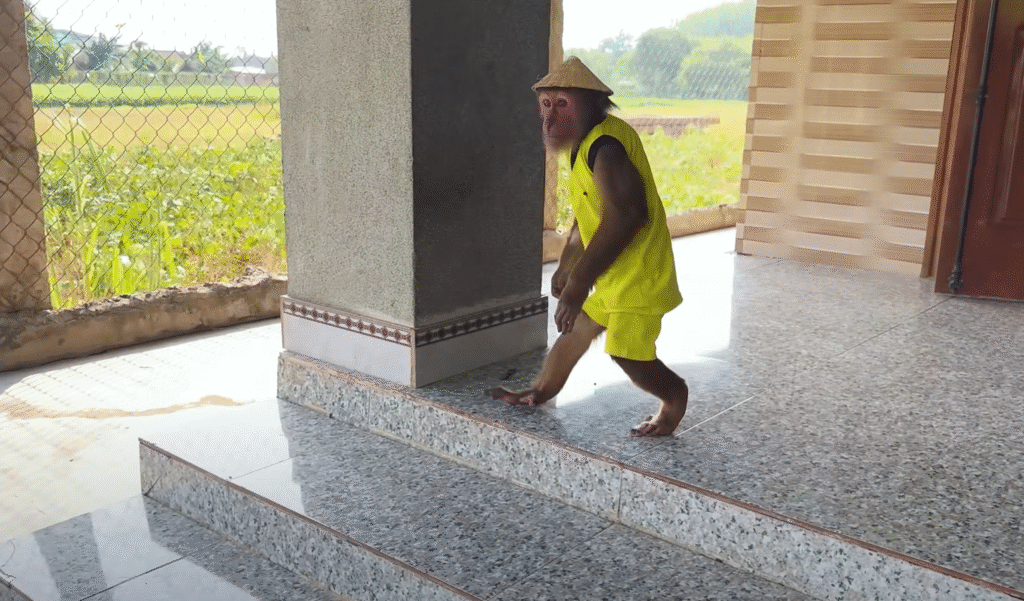
They named the monkey “Koko.” At first, Koko was sick and couldn’t eat solid food. The old woman suggested milk, but they didn’t have any. Milk was expensive. But Cutis didn’t hesitate. The very next day, he set out with a new goal: earn enough money to buy milk every day for Koko.
He worked harder than ever. He skipped lunch sometimes just to save a bit more. When people in the village heard about what he was doing—working to feed a baby monkey—some laughed, but many were touched. A boy taking care of his brother and now an orphaned animal? That was something rare. He quickly became known as the “hero brother.”
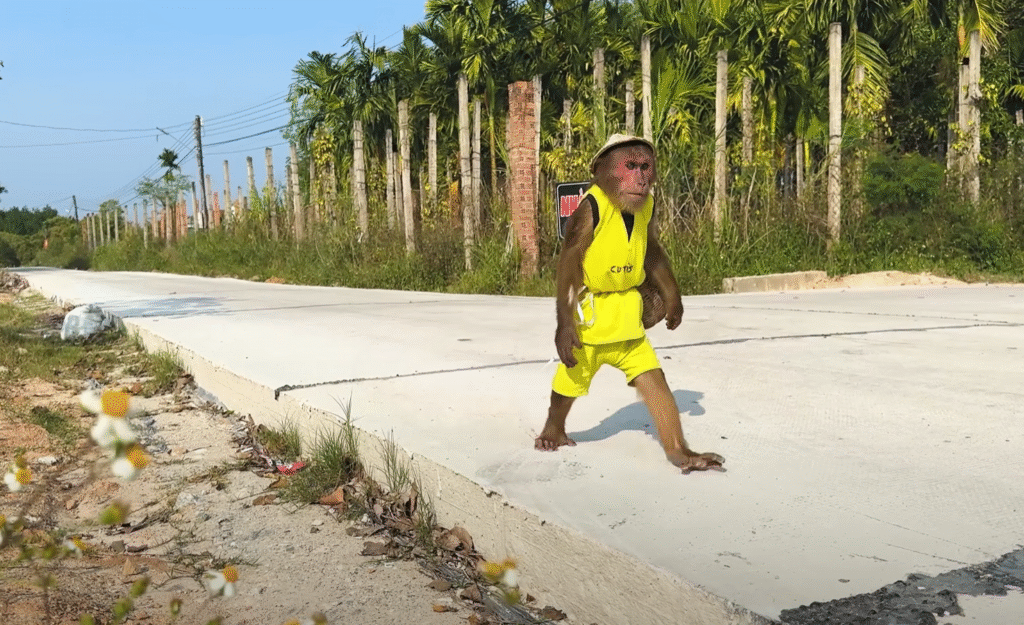
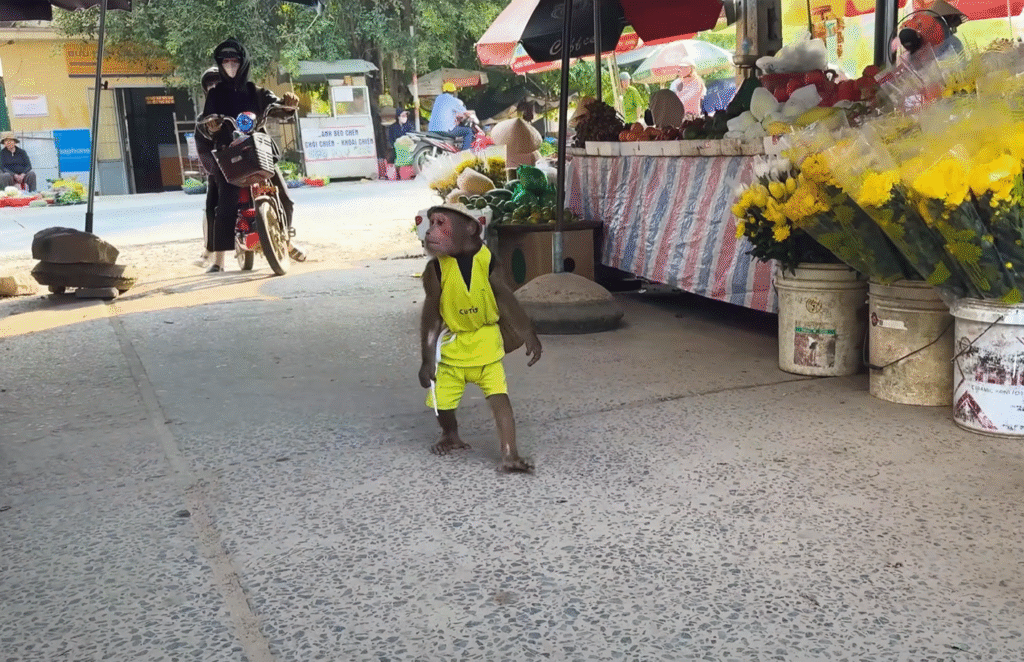
“Cutis, you are stronger than most men,” the village elder once told him, handing him some extra bananas and a coin. “Not because of your muscles, but because of your heart.”
Days turned into weeks. Koko began to grow healthier, stronger. He followed Cutis everywhere—climbing onto his shoulders, snuggling next to Mali when they slept. The monkey and the boy had formed a bond as tight as family. Koko became part of the team: he helped carry light baskets, fetched small things, and made Mali laugh when he was sad. He was no longer a burden, but a friend—and a reminder of how love, even for a small creature, could transform lives.
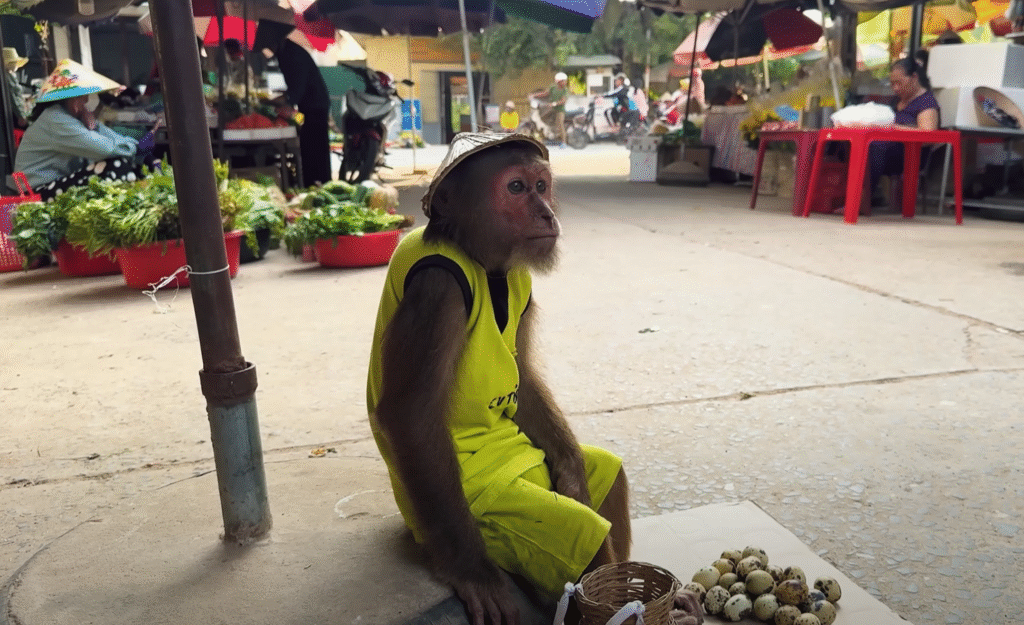
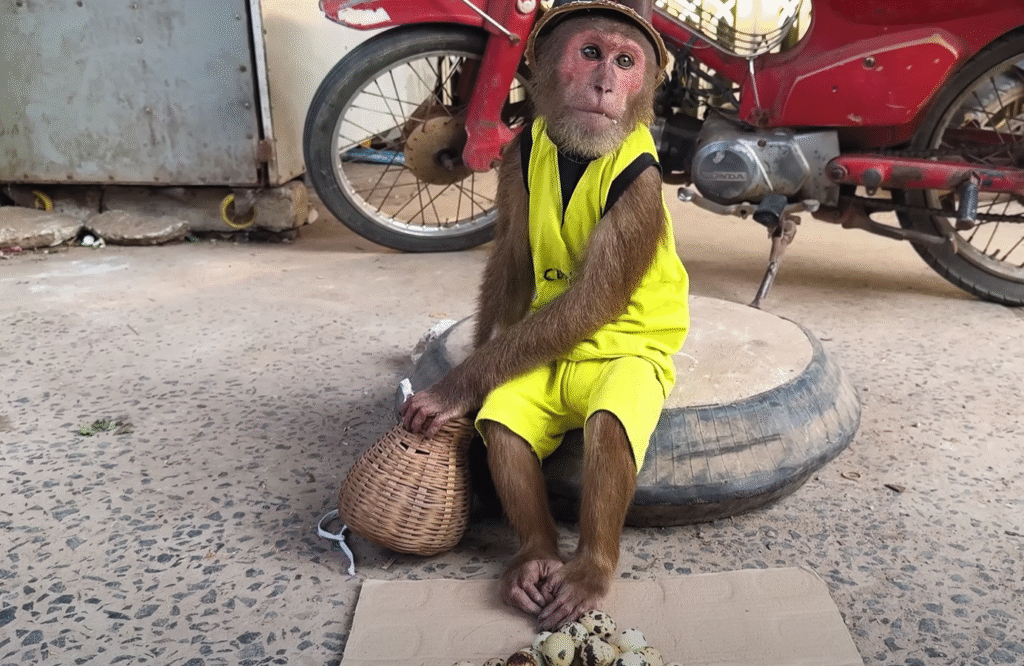


One day, while Cutis was helping dig a small canal with some village men, there was a commotion. A cry rang out from the direction of the house. Cutis dropped his shovel and ran as fast as he could. When he reached home, he found Mali crying, smoke rising from the back of the kitchen. A fire had started from the old wooden stove.
The neighbors said that if it weren’t for Koko, things would’ve been worse. Koko had run outside to alert the others by making noise and jumping around frantically. He had even tried to drag a blanket to help cover Mali, who had been too scared to move.
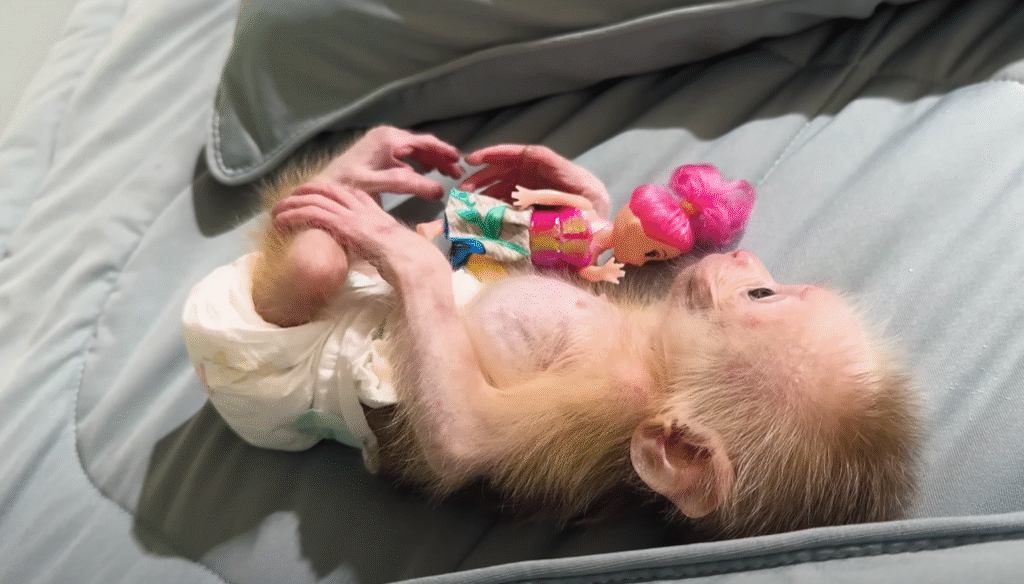
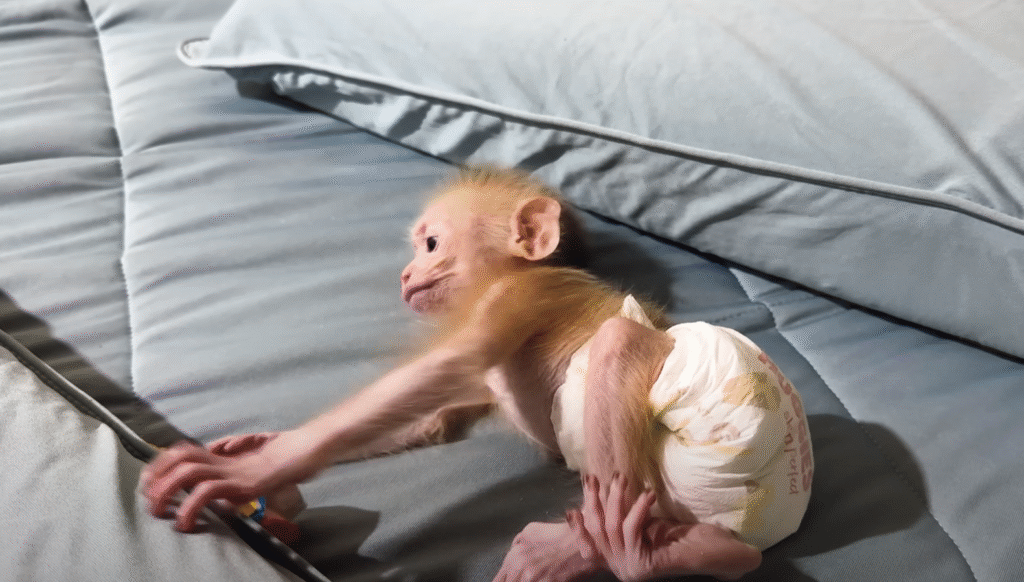
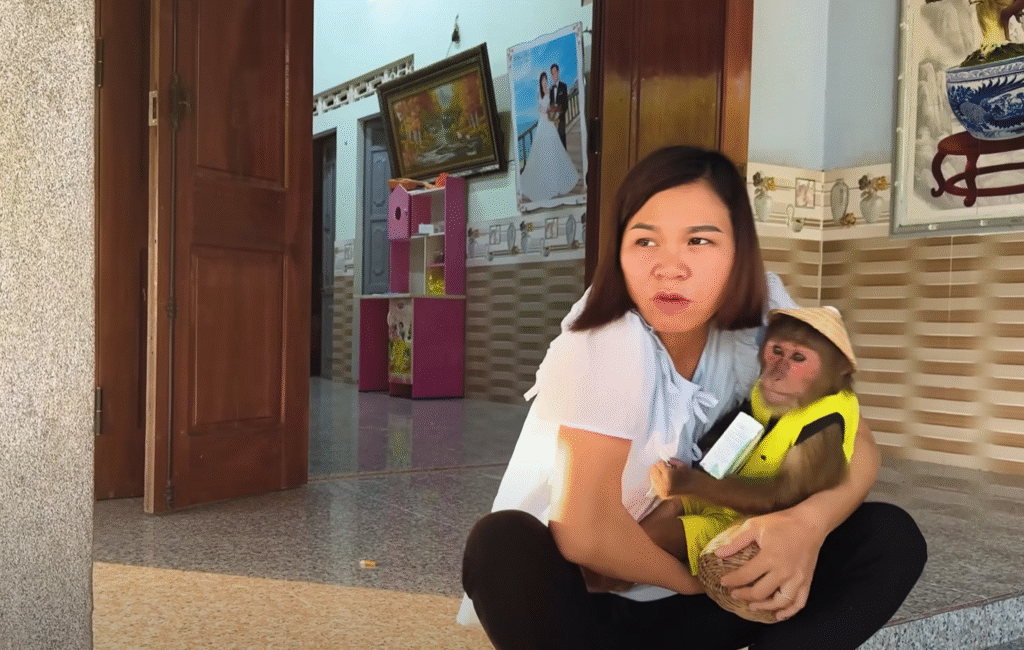
The monkey that Cutis had once saved had now saved them in return.
That night, Cutis sat under the stars with Mali in one arm and Koko in the other. He thought about everything that had happened in the past year. He had lost his parents, learned to work like a man, become a brother, a father, a caretaker, and now—thanks to a little milk and a lot of love—he was a hero in his village.
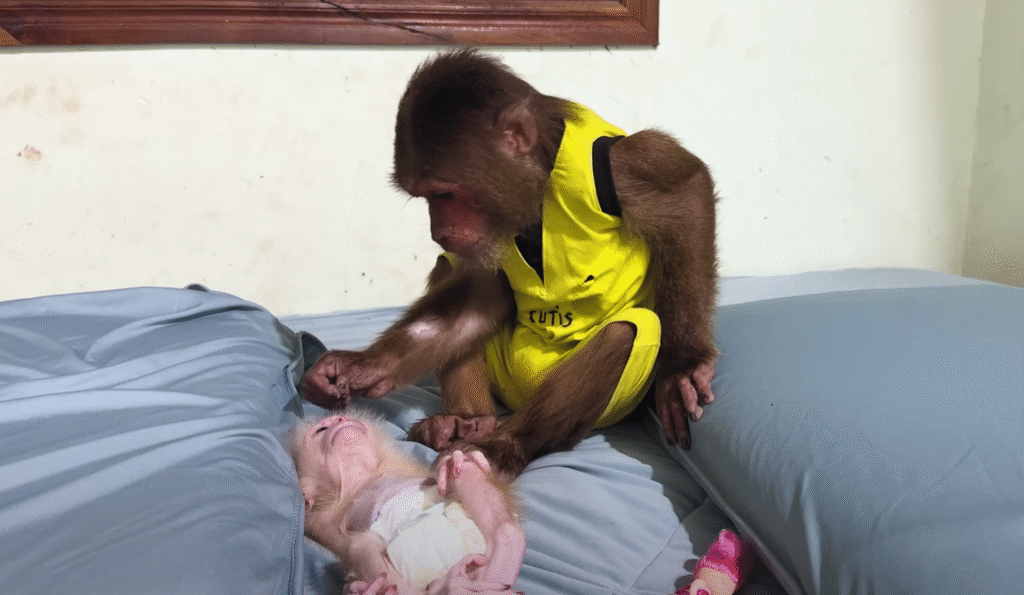
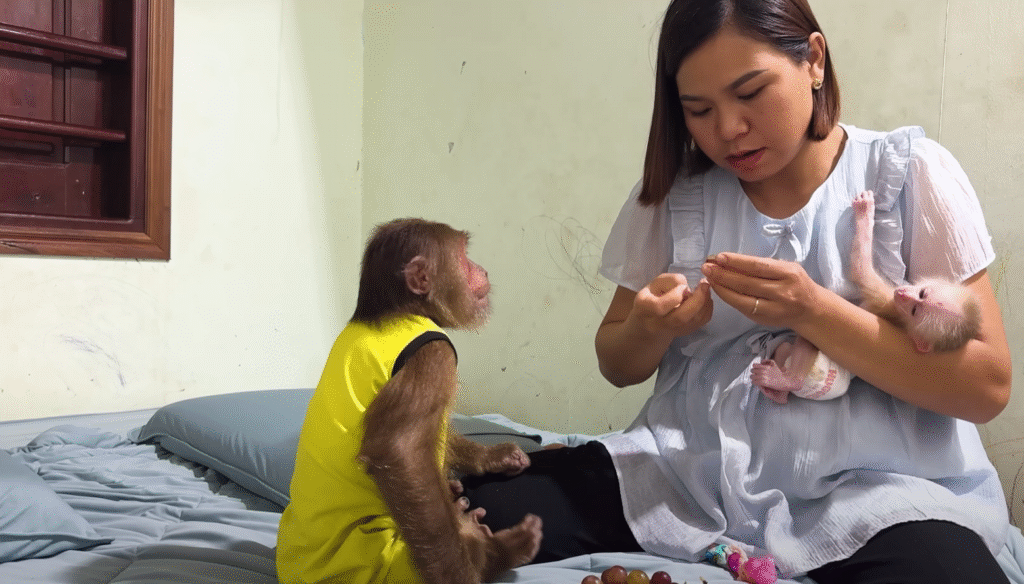
But Cutis didn’t think of himself as a hero. He only knew that love was something you gave, not something you waited for. Whether it was to his little brother or a tiny monkey in the woods, Cutis gave what he had—and that made all the difference.
Soon, people in the village began to look at him differently. A local teacher offered him a part-time job helping at the school, so he could earn money and study in the afternoons. A grocer promised to give him milk for Koko every day. Mali got a sponsor for schooling. And Koko? He became the village mascot—cheeky, loyal, and beloved.
Cutis never asked for reward. But the kindness he showed spread through the village like warm light on a cold morning. It reminded people that even the smallest act of care could ripple out and change the world.
Years later, when Cutis grew into a young man, he built a small animal shelter with the help of volunteers. He named it “Koko’s Haven,” in honor of the monkey who had changed his life. Children from around the area would visit, learn how to care for animals, and hear the story of the boy who worked hard, bought milk, fed a monkey, and became a hero not just to his brother—but to everyone.
And through it all, Cutis remained the same: humble, hardworking, and full of love. The kind of hero the world quietly needs.
Let me know if you’d like this edited into a specific format—like a children’s story, social media post, or YouTube video script!
